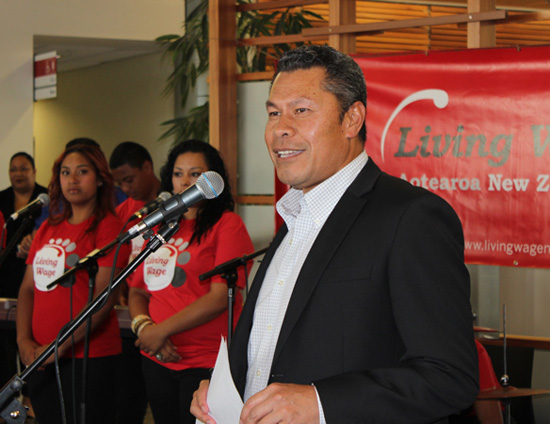
By Lei Shi
The Samoan government is proposing a new law that may change the current definition of national identity as a “Samoan”.
Iuni Sapolu, a Samoan-born lawyer based in South Auckland, says all Samoans should be informed about the proposed changes to what it means to be a Samoan.
“There is a distinction between a Samoan and a Samoan citizen. In this proposed draft, a Samoan equals a Samoan citizen plus Samoan blood.
“One can become a Samoan citizen, but without Samoan blood, one cannot become a Samoan. Only by virtue of being a Samoan, can one have customary rights to land. If you are only a Samoan citizen, you cannot claim ownership of customary land.”
The chair of the Pacific Peoples Advisory Panel, Rev Uesifili Unasa, says the current legal definition of a Samoan is incomplete, because Samoan citizens’ rights are denied in terms of voting.
“Samoan identity does not equal Samoan citizenship. Citizenship for Samoan people does not entitle them to a vote. Voting is an important process in a democratic society, and that is a human rights issue.”
According to a Statistics New Zealand 2001 census, Samoans are the single largest Pacific ethnic group living in New Zealand, comprising 115,000 or 50 percent of New Zealand’s Pacific population.
Court declaration
Mary-Rose Russell, a senior lecturer at AUT University law school, says the proposed legislation currently does not repeal the Samoan Status Act 1963 in defining who a Samoan is, and there are “wide kinds of ways to become a Samoan under their existing legislation”.
“To be a Samoan, you have to be a citizen; and you have to have Samoan blood. But you can also be declared by a court to be a Samoan.”
Russell says the meaning of “Samoan blood” is wide. “In some First World nations, blood can be specified to a percentage. And in this case, we have not seen it.”
“At this stage it is unclear what impact the legislation will bring to Samoans.”
Sapolu says Samoan culture and customary land are at risk if the proposed legislations are passed.
“The basic concept of Samoan culture, it’s the extended family owns the customary land.
“Aiga makes decisions for themselves; not the Samoan government. Culture and customs are the fabric of Samoans, and Samoans have not been consulted.”
Customary land
Customary land in Samoa is owned by aiga– a Samoan term meaning “extended family”.
About 80 percent of land in Samoa is customary land, and under the current Samoan Constitution, customary land cannot be sold.
Sapolu is calling for submissions to the Samoan Attorney-General by Monday.
According to a published 2008 study by Ruiping Ye, from Victoria University of Wellington, the Samoan government has long been seeking ways to change the land registration system in Samoa to free up customary land.
Rev Unasa says the denial of voting rights for citizens is a legal issue in Samoa because it is the government that makes decisions that impact on customary rights and the life of its citizens.
“All Samoan citizens should be given the rights to vote. The definition of citizenship needs to be more inclusive of what their rights are.”
Russell says if Samoans are concerned by this proposed legislation, the best way is to lobby and inform their elected representatives in the Samoan Parliament.
“They can lobby or make submissions according to how the Samoan democratic process works, but it’s a different matter if the dissatisfaction is about how the system works.”
Lei Shi is a Graduate Diploma in Pacific Journalism student journalist at AUT University.
This work is licensed under a Creative Commons Attribution-NonCommercial 3.0 New Zealand Licence.




